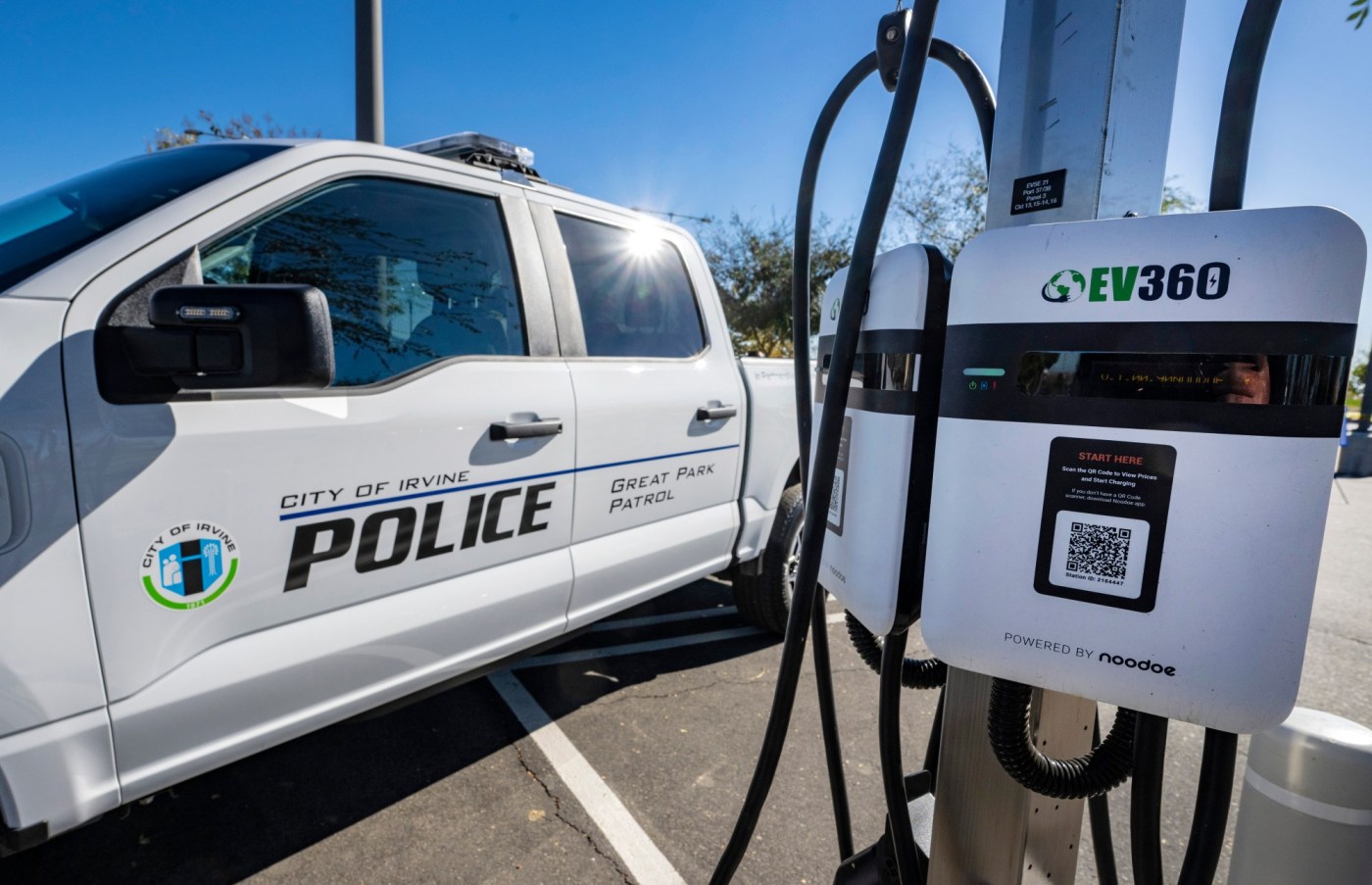By 2030, the city of Irvine plans to achieve carbon neutrality, and a big part of its ambitious sustainability goals is electrifying its police fleet, officials say.
With the help of nearly $1 million in funding from the state, the Irvine Police Department will transition its fleet at the Great Park to all-electric. The funds will go toward six charging stations at the Great Park for the department’s use and 13 electric vehicles to provide policing services in and around the Great Park, including Ford F-150 Lightning trucks, Ford Mustang Mach-Es, Polaris Rangers and all-terrain vehicles.
“It’s remarkable to see how much has changed (at the Great Park),” said Irvine Police Chief Michael Kent. “Upon its completion, it will join America’s inventory of national treasures, and it will set a new standard for great metropolitan parks nationwide.”
The funding allows the city to take “another step into the development of the Great Park,” he said.
Related links
How Irvine plans to achieve its lofty climate goals
Irvine plans to make sustainability the heart of Great Park
“There’s a saying in politics that budgets are a reflection of our values, and these funds demonstrate the state’s commitment to public safety as well as also meeting our climate goals,” said state Sen. Dave Min, D-Irvine, who helped secure the funding in the state budget. “While it’s another beautiful day in Irvine, we know that increasing temperatures are dramatically going to change our civilization unless we start to turn things around.”
Modern, greener police vehicles are a small step in that right direction, he said.
The department has 230 vehicles that range from sedans, trucks, motorcycles, trailers and other larger vehicles, said Kent, but only one electric vehicle: a Ford F-150 Lightning that has been patrolling the Great Park since June.
Kent said the department’s goal to transition the fleet of vehicles that patrols the Great Park to all-electric is “ASAP.”
“As soon as we can get the order into manufacturers, they’re going out into the field,” he said.
And the goal to transition the majority, if not the entire police fleet, to all-electric is 2030 at the latest, Kent said, the same year the city plans to reach zero carbon emissions.
Transitioning some specialized police vehicles, including motorcycles, will depend on the available technology, said Kent.
In addition to the electric vehicles, the money will go toward public safety equipment, including wave radios, lapel microphones and binoculars, as well as cryptocurrency investigation software.
The remaining funds will be used to purchase new software for Irvine’s Real Time Crime Center.
Software costs are estimated to be around $150,000; cryptocurrency software around $18,000; public safety equipment approximately $60,380; the electric vehicle charging stations around $71,000 and the electric vehicles approximately $690,000, the biggest price tag, said city spokesperson Linda Fontes.
Related Articles
Irvine to consider building a temporary live music venue at the Great Park
Retail center at the Great Park scheduled to break ground next fall
Inside Irvine’s plans for a new library in the Great Park
“Not only will this fleet allow us to further enhance the safety of park guests, but (it) will also allow us to do so while meeting our city’s climate action goals,” Mayor Farrah Khan said. “The electric fleet will help reduce greenhouse gas emissions and save on fuel costs.”
Other cities in Orange County, including Huntington Beach and Laguna Beach, have also started conversations directed toward transitioning their fleets of city-owned vehicles to all-electric.
Kent said he isn’t aware of any other agencies that have electric vehicles in Orange County in their fleet, but in speaking to other chiefs in the county, he does know that “everybody is on the same page” to look at some sort of transition to electric.





